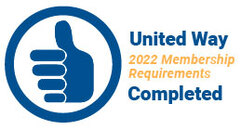|
One of the best sources of support for those in recovery are mutual aid societies, or support groups, where people who have experienced various forms of substance use come together to support each other in recovery. Although drug misuse, especially opioids, has garnered media attention recently, alcoholism is the most commonly abused substance in the United States.
Alcoholics Anonymous is the best known and most successful mutual aid society. According to the AA website: “AA is an international fellowship of men and women who have had a drinking problem. It is nonprofessional, self-supporting, multiracial, apolitical, and available almost everywhere. There are no age or education requirements. Membership is free and open to anyone who wants to do something about his or her drinking problem.” Formed in 1935 by Bill Wilson and Dr. Bob Smith, AA began with three members and quickly grew. Although accurate numbers are difficult to obtain because of the anonymity of AA membership, the organization estimates that worldwide there are currently more than two million members within 125,000 groups. In 1939, The AA Big Book was first published, explaining the 12 Steps of Recovery. The 12 steps are guidelines or steps toward recovery. They may also be seen as a series of personal choices and actions that allow a person in recovery to move away from dependence and toward control over alcohol abuse. Whether through personal and family experience or through media, many of us have heard of the 12 steps. It’s important to remember that these actions are serious goals and accomplishments for people in recovery. Those in AA call doing the steps “working the program” and take personal responsibility for their efforts. The 12 steps have been adapted by other support groups, such as Gamblers Anonymous and Narcotics Anonymous to help people recover from various addictions, and the term “12-step program” is often used to describe mutual aid societies that use this recovery technique. Some people might feel initially uncomfortable with the religious aspect of the AA program. AA does not support any specific religion but recognizes that helping people access the positive emotions of a higher power can facilitate recovery. Members insist that the focus is “spiritual and not religious,” and an individual can define the “higher power.” Just as some people may be uncomfortable with religious tones, some religious organizations find the open-ended spiritualism to be offensive in its vagueness. Regardless of one’s preconception of the steps or the spiritual aspect of AA, research from various sources suggests that AA is one of the most successful recovery supports available. Its success comes from helping people change their social networks to ones that support sobriety and recovery, increasing abstinence and healthy coping skills, and motivating themselves and others to maintain recovery over time. If you or someone you know needs to connect with AA, call the AA Hotline: 800-422-3140. Next time we will continue our discussion of AA.
0 Comments
Your comment will be posted after it is approved.
Leave a Reply. |
AuthorLynn Saylor is the AmeriCorps member working with the United Against Opioid Abuse Initiative alongside the White County United Way. She is a major facilitator of the United Council on Opioids serving White County and a regular contributor to local media. Archives
October 2020
Categories
All
|

 RSS Feed
RSS Feed
